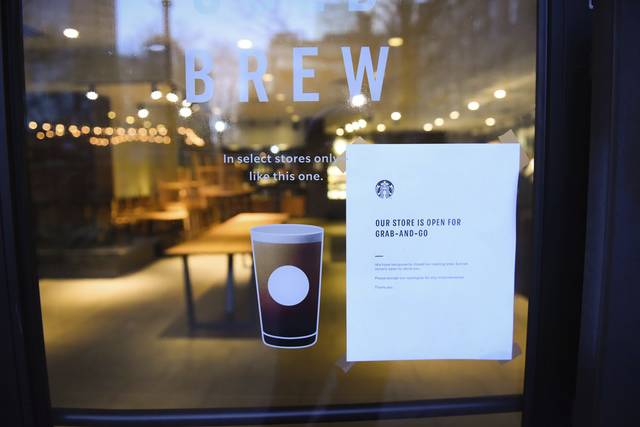https://naviga.triblive.com/local/pittsburgh-allegheny/pittsburgh-infectious-disease-expert-discusses-business-shutdown-order-effect-on-society/
Wolf’s shutdown could be more harmful than coronavirus, health expert says

With Gov. Tom Wolf’s announcement Thursday that all non-life-sustaining businesses in Pennsylvania should close, we spoke to Pittsburgh-based infectious disease and critical care physician Dr. Amesh Adalja for a reaction from a medical expert.
A senior scholar at the Johns Hopkins Center for Health Security, Adalja works on pandemic preparedness, emerging infectious diseases and hospital preparedness.
Here’s what he said.
Question: What is the best way to balance the health threat posed by covid-19 vs. the economic shutdown?
Answer: This is a very hard decision to make. As the economic shutdown becomes broader, there is a real risk of doing more damage by threatening peoples’ livelihoods as well as their well-being than the virus will do. There is a point where more harm can be done than good. Voluntary social distancing is one thing and advisable, but government force is quite another.
Q: How will this shutdown impact mental health of people?
A: Social isolation can be psychologically difficult for people. These are consequences that can often be overlooked when people are focused so acutely on one threat.
Q: Should people cancel elective surgeries, in your opinion?
A: Though people use the word “elective,” it’s unclear that there’s a clear distinction between what is truly elective and what is needed. For example, a person with debilitating arthritis who cannot do their activities of daily living needs a hip replacement is technically considered elective, but their quality of life is suffering without that surgery.
I think people need to evaluate surgeries in the context of their own life. There will be no one-size-fits-all definition of elective.
Q: Should health systems continue to schedule elective surgery?
A: Each hospital should take a nuanced approach to this. The approach should be based upon the urgency of the surgical cases as well as the availability of personal protective equipment. The number of covid-19 cases in a hospital should also be a factor. I do not believe there should be a blanket recommendation or a one-size-fits-all approach. During this pandemic, there are going to be other health needs that are going to need to be addressed.
One of the most disruptive aspects of a pandemic is the fact that it will have cascading impacts on other health outcomes. We need to ensure that hospital operations focused on other vital needs of myriad other medical conditions are disrupted as minimally as possible.
Q: What steps should we take to ensure our health safety when we enter the businesses that are operating, such as grocery stores and pharmacies?
A: The best steps to take include washing your hands frequently, not touching your face, and trying to avoid people who are sick — as best as possible. You may want to go during non-peak hours when there are fewer individuals there, if possible.
Copyright ©2026— Trib Total Media, LLC (TribLIVE.com)
